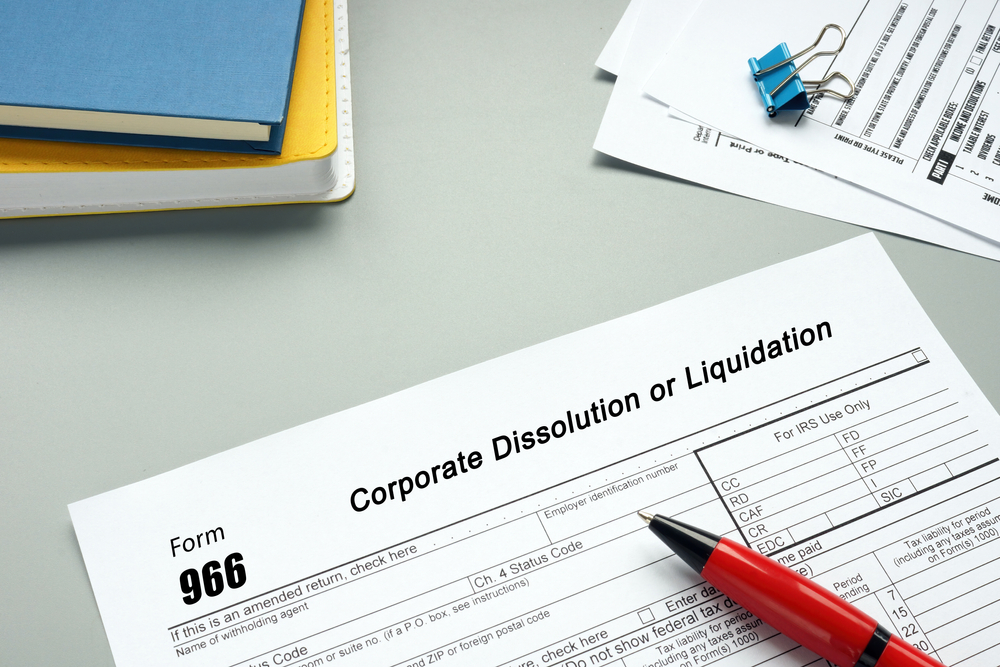Table of Contents
Corporate Dissolutions: Navigating the End of Your Corporation with SK Legal
When the time comes to end a business’s operations, understanding the process of corporate dissolution is crucial. Dissolving a corporation is more than just closing a shop; it involves a formal process governed by legal requirements to ensure all obligations are met before a company ceases to exist. At SK Legal, we guide you through this intricate process, ensuring that your corporate dissolution is executed smoothly and effectively.
What is Corporate Dissolution?
Corporate dissolution refers to the official termination of a corporation’s existence. This process effectively ends the corporation’s legal standing, meaning it will no longer be recognized as a business entity under the law. Whether voluntary or involuntary, the dissolution process involves several steps to ensure that all debts are settled, assets are properly distributed, and legal obligations are fulfilled.
When Can a Corporation Dissolve?
A corporation can only dissolve once it has settled all its debts and disposed of all its assets. This means that before a corporation can be formally dissolved, it must undergo a liquidation process to ensure that all financial obligations are cleared. Additionally, corporations facing bankruptcy cannot apply for dissolution until they have addressed their bankruptcy obligations.
Why Do Corporations Dissolve?
Corporations may choose to dissolve for various reasons, including:
- Financial Difficulties: The corporation may no longer be profitable or viable.
- Strategic Changes: Shareholders may wish to end the business due to shifts in strategic direction.
- Retirement or Sale: The business owner may retire or sell the business, leading to its dissolution.
- Legal Issues: Failure to comply with regulatory requirements can prompt involuntary dissolution by the authorities.
The Dissolution Process in Alberta
In Alberta, dissolving a corporation involves several key steps, each crucial to ensuring a legally sound termination of the business:
1. Liquidation
Liquidation is the process of selling off a corporation’s assets and using the proceeds to pay off its creditors. This step is necessary before dissolution, as a corporation cannot legally handle any transactions once it is dissolved.
2. Voluntary Dissolution
To voluntarily dissolve a corporation, the following steps must be taken:
- Resolution: Directors and shareholders must approve a resolution to dissolve.
- Statement of Intent: File a Statement of Intent to Dissolve with the Registrar.
- Notification: Inform creditors and advertise the dissolution in local newspapers and the Alberta Gazette.
- Completion: Once assets are distributed and liabilities discharged, file Articles of Dissolution to receive a Certificate of Dissolution.
3. Involuntary Dissolution
Involuntary dissolution occurs when a corporation is dissolved by court order or the Corporate Registrar due to non-compliance with legal requirements, such as failing to file annual returns or engaging in illegal activities.
4. Reviving a Dissolved Corporation
If a corporation is unintentionally dissolved, it may be possible to revive it by filing Articles of Revival and meeting any conditions imposed by the Registrar. This process allows the corporation to resume its operations under specific terms.
Why Choose SK Legal for Corporate Dissolution?
At SK Legal, our dissolution lawyers offer comprehensive assistance throughout the dissolution process. Our services include:
- Guidance on Legal Requirements: Ensuring all steps are taken in compliance with Alberta laws.
- Asset and Liability Management: Assisting with the liquidation of assets and settling liabilities.
- Documentation and Filing: Preparing and filing necessary documents with the Corporate Registrar.
- Revival Services: Helping to revive a corporation if dissolution was not intended.
SK Legal provides guidance on every step of the dissolution process, including asset liquidation, filing necessary documents, and ensuring compliance with Alberta regulations.
Dissolving a corporation involves a detailed process with significant legal considerations. At SK Legal, we are committed to helping you navigate this process smoothly and effectively. Contact us to ensure a seamless end to your business’s legal existence.

What is the first step in dissolving a corporation?
The first step is to ensure that the corporation has no outstanding debts or liabilities. Following this, a resolution must be passed by the directors and shareholders to approve the dissolution.
Can a corporation be dissolved if it has assets?
No, a corporation must liquidate its assets and settle any liabilities before it can be dissolved.
What is the difference between liquidation and dissolution?
Liquidation involves selling off assets and paying creditors, while dissolution is the formal end of the corporation’s legal existence after all financial obligations are settled.
How long does the dissolution process take?
The dissolution process can vary depending on the complexity of the corporation’s financial status and the efficiency in completing necessary paperwork. Generally, it may take several weeks to months.
Can a corporation be dissolved voluntarily?
Yes, a corporation can be dissolved voluntarily if its directors and shareholders approve the decision and follow the required steps.
Areas We Serve
At SK Legal, we are proud to offer top-tier legal services to clients across a broad range of locations. Whether you are buying or selling a business, our team is dedicated to providing specialized legal guidance tailored to your specific needs. We serve clients in the following regions:
Wherever your business is located, SK Legal is committed to delivering exceptional legal support, ensuring that your business transactions are handled efficiently.
- Contract Law Across Countries (Canada and United States)
- Cross Border Services (United States and Canada)
- SK Legal – Contingency Engagements for 100% Success – Serving all of British Columbia and Alberta
- Navigating Personal Injury Claims with SK Legal as Your Trusted Lawyer in Alberta
- SK Legal: Your Trusted Lawyer for Personal Injury Claims in Alberta and British Columbia

